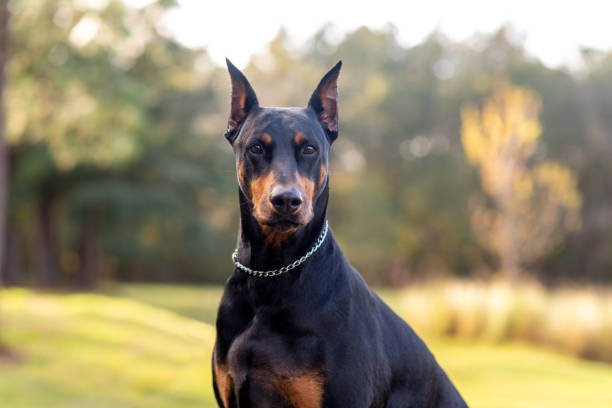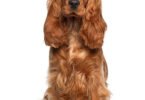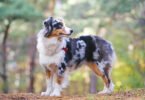The Doberman Pinscher: A Dynamic and Loyal Guardian
The Doberman Pinscher, often simply referred to as the Doberman, is a breed that exudes strength, intelligence, and loyalty. Known for its sleek appearance, alert expression, and versatile abilities, the Doberman has established itself as a formidable working dog and a devoted family companion. In this exploration, we delve into the history, physical characteristics, temperament, intelligence, exercise needs, grooming requirements, and overall health considerations that define the dynamic and loyal Doberman Pinscher.
Origin and History
The Doberman Pinscher originated in Germany in the late 19th century, and its development is credited to a tax collector named Louis Dobermann. Seeking a dog that could accompany him during his rounds and provide protection, Dobermann selectively bred various dogs, including the Rottweiler, Greyhound, Weimaraner, and German Pinscher, to create a versatile and reliable working breed.
The resulting Doberman was intended to be a loyal guardian, an intelligent working dog, and a companion. Over time, the breed gained recognition for its exceptional intelligence, agility, and versatility in various roles, including police work, search and rescue, and as a family protector.
Physical Characteristics
The Doberman is a medium to large-sized dog with a sleek and athletic build. Its coat is short, smooth, and typically comes in black, blue, red, or fawn with rust-colored markings. The breed’s head is long and well-proportioned, featuring a powerful jaw and a distinct stop. Dobermans have a keen expression, with almond-shaped eyes that convey alertness and intelligence. The ears are often cropped to stand erect, although natural, uncropped ears are also common.
One of the breed’s distinctive features is its docked tail, which is traditionally shortened to a stub in regions where tail docking is practiced. However, this practice is becoming less common due to changing attitudes and regulations regarding cosmetic procedures for dogs.
Temperament and Personality
Dobermans are known for their loyalty, intelligence, and protective instincts. They often form strong bonds with their families and are known to be affectionate and loving. While they can be reserved around strangers, well-socialized Dobermans are typically good-natured and adaptable.
The breed’s protective nature makes Dobermans excellent guard dogs. They are alert and vigilant, making them effective at deterring potential intruders. Proper training and socialization from a young age are crucial to ensure that their protective instincts are well-balanced and directed appropriately.
Intelligence and Trainability
Dobermans consistently rank high in intelligence among dog breeds. They are quick learners and respond well to positive reinforcement training methods. Early and consistent training is essential for Dobermans, as their intelligence, combined with their strength, requires a well-mannered and obedient dog.
Dobermans thrive on mental stimulation and enjoy activities that challenge their intelligence. Engaging in obedience training, agility courses, or interactive games helps channel their energy and intellect in positive ways. Providing a mix of physical and mental exercise contributes to a well-balanced and content Doberman.
Exercise Needs
Dobermans are an active and energetic breed that requires regular exercise to maintain their physical and mental well-being. Daily walks, playtime, and opportunities for off-leash running in a secure area are important for the breed. Dobermans also enjoy engaging in activities such as fetch, agility, and obedience training.
Due to their athletic build, Dobermans may excel in canine sports and activities that allow them to showcase their agility and versatility. Adequate exercise helps prevent boredom, which can lead to undesirable behaviors, and contributes to a healthy and happy Doberman.
Grooming and Coat Care
The Doberman’s short coat is relatively low-maintenance. Regular brushing helps keep their coat clean and reduces shedding. As with any breed, basic grooming practices, such as nail trimming, dental care, and routine ear cleaning, are essential for their overall health.
Dobermans are known for being clean dogs with minimal odor. Bathing is generally only necessary when they get dirty, and overbathing should be avoided to preserve the natural oils in their coat. Regular check-ups of their teeth and gums contribute to good oral health.
Health Considerations
Dobermans are generally a healthy breed, but like all dogs, they may be prone to certain health conditions. Common concerns include hip dysplasia, heart issues (particularly dilated cardiomyopathy), and certain genetic conditions. Regular veterinary check-ups, a balanced diet, and maintaining a healthy weight contribute to the overall well-being of a Doberman.
Responsible breeding practices, including health screenings for potential genetic issues, are crucial for producing healthy Doberman puppies. Early detection and management of potential health concerns are important, and Doberman owners should be aware of the breed’s susceptibility to certain conditions.
Conclusion
In conclusion, the Doberman Pinscher stands as a dynamic and loyal guardian with a rich history of serving in various roles, from protector to family companion. From its origins as a versatile working breed in Germany to its present-day status as a cherished family pet, the Doberman embodies a combination of intelligence, athleticism, and unwavering loyalty.
Whether serving as a vigilant protector, participating in canine sports, or simply providing companionship, Dobermans continue to capture the hearts of dog enthusiasts worldwide. The breed’s distinctive appearance, coupled with its gentle and loving nature, makes the Doberman a remarkable and enduring presence in the lives of those fortunate enough to share their homes with this extraordinary canine companion.







[…] or indoor games can be sufficient to meet their exercise requirements. It’s important to monitor their weight and avoid overfeeding, as obesity can lead to health issues. Chihuahuas may also […]